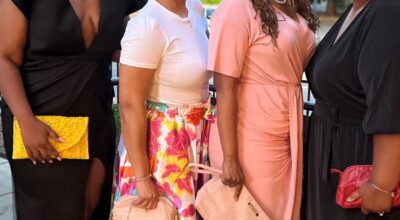Council urged to practice ‘slow democracy’
Published 12:00 am Wednesday, March 19, 2014
At a luncheon for the city council retreat, guest speaker Susan Clark encouraged Salisbury’s elected and volunteer leaders to include citizens in local decisions.
“Together all of us know more than any of us,” she told those in attendance.
Clark is the co-author of “Slow Democracy” and “All Those In Favor: Rediscovering the Secrets of Town Meeting and Community” and serves as town moderator in Middlesex, Vermont. In 2010, she was honored with the Vermont Secretary of State’s Enduring Democracy Award.
“Slow Democracy,” which was published in 2012, is directed toward public administrators in cities and towns, but is also often used in political science classrooms.
The concept of slow democracy isn’t a call for longer meetings or decision times, Clark said. Instead, it’s about the care for citizen-led democracy.
Often it’s a hard idea to grasp, since there’s no model of how it works on the national level.
Slow democracy is local decision-making that is inclusive, deliberative and empowered, Clark said.
This allows citizen participants to have real access to the decision-making process and encourages those of opposing viewpoints to co-create new policies. It shows the participants their value and is more productive than traditional decision-making.
This kind of discussion steps away from polarized debate by avoiding the “us versus them” mentality.
“Sometimes it’s hard to listen to people you don’t agree with,” Clark said, adding that studies have shown that the brain under-processes information people don’t like but can’t dismiss.
So, Clark encouraged outlining issues in an inclusive way by asking for feedback on how to improve or what to consider instead of picking one side of an issue.
Clark told the leaders to make citizen involvement worth each individual’s time by being creative and engaging them early on.
“The power element is surprisingly compelling,” she said, encouraging them to leverage that fact.
Clark also talked about innovative ways to do just that, such as study circles, participatory budgeting, civic health clubs and living room conversations.
Study Circles bring together a large and diverse number of citizens, then breaks them into groups where they gather information and build understanding before they bring suggestions to decision-makers. Clark pointed out that this method only works when the decision-makers are invested in the entire process and use the feedback they receive.
Participatory budgeting allows citizens to provide feedback about how to spend discretionary budget funding and the United Nations says it’s a good practice, according to Clark.
Another innovative idea Clark presented was civic-health clubs. Just like people go to the gym for improved physical health or church to develop spiritual well being, a civic-health club is targeted at strengthening civic health. The clubs provide a place for citizens to do things together, emphasizing fun activities, while encouraging people to think about and engage in conversations about civic topics.
The final measure Clark suggested was living room conversations. Two hosts, one liberal and one conservative, invite people into one of their homes and facilitate conversations about controversial topics to find areas of alignment.
She warned that the hosts must be careful to insure the topics are framed in a way both groups will want to discuss the issues.
Clark said these efforts supply surprising dividends. Involved citizens build connections, appreciate each other and are more likely to volunteer and vote, leading to economic strength, resilience during crisis and civic health and responsibility.
After the luncheon, Mayor Paul Woodson said he was excited about Clark’s ideas surrounding community involvement, particularly meeting in less formal environments and bringing together diverse groups.
He said Clark’s message was especially important for those in attendance, most of whom are already involved in local government.
They focus on the individual projects so the city council can focus on the entire city, Woodson adding that the session “let them know they’re important.”





